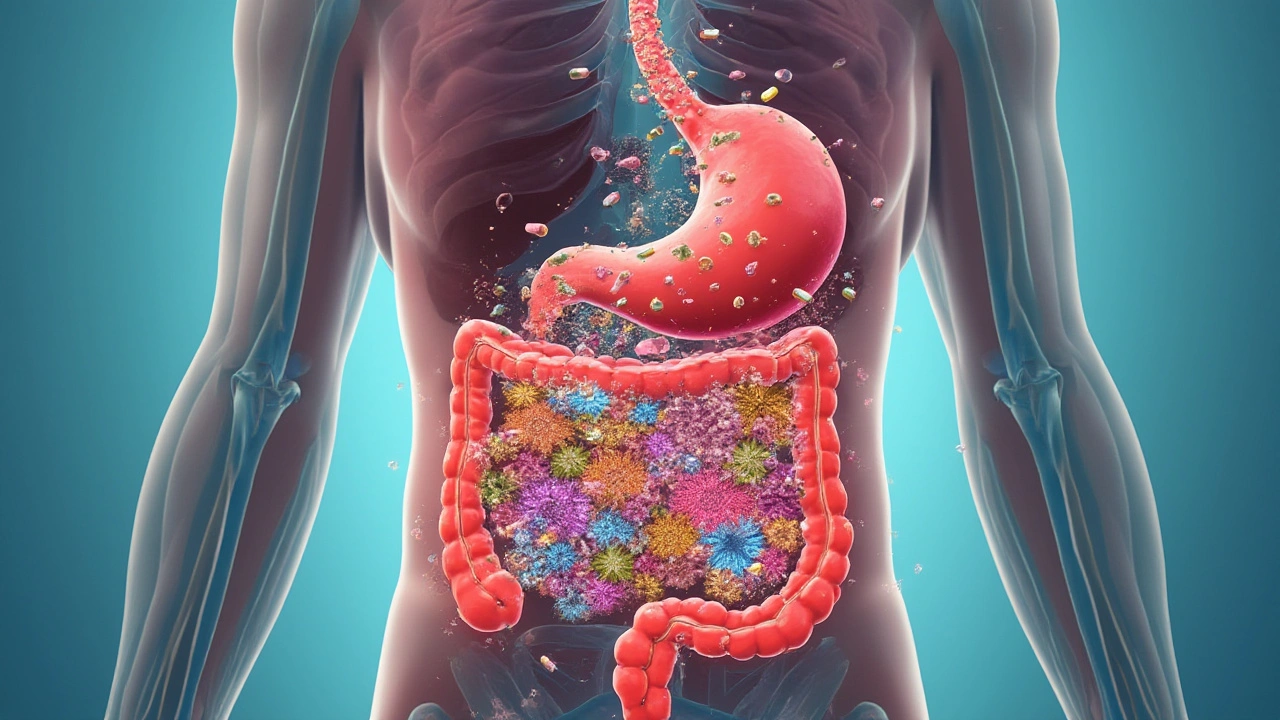Microbiome Changes: What Really Shifts Your Gut Health?
Your microbiome isn’t just some science buzzword—it's the collection of bacteria and microbes living mainly in your gut, and it changes fast based on what you do every day. Miss breakfast? Have a late-night snack? Binge antibiotics for a cold? Every one of these habits can tilt your gut’s balance, sometimes overnight.
Those friendly bacteria keep your immune system on its toes and help digest everything from fiber to ice cream. But throw a big change their way—think sudden diet flip, new meds, or even a hectic week—and you’ll notice real shifts. For example, studies at Harvard have shown that switching from a plant-based diet to a high-meat one flips your gut bacteria in just two days. Wonder why your stomach feels weird on vacation? It’s your microbiome freaking out over new foods and routines.
It’s not just what you eat; sleep and stress play a big role too. Pull an all-nighter, deal with an extra-tough work week, or get sick—these moments shake up your gut more than you’d think. That’s one reason more folks are talking about probiotics and fermented foods like yogurt, kimchi, or sauerkraut. They're easy ways to toss "good" bugs back into the mix.
But here’s the kicker—antibiotics, while life-saving, can wipe out huge chunks of your microbiome. Most people don’t realize that even a short round of antibiotics can take months for your gut bugs to bounce back. If you ever get a prescription for antibiotics, doctors often recommend eating plain yogurt or taking a probiotic at the same time (just not in the same sitting, so the meds don’t destroy everything at once).
How do you help your gut recover? Routine is key. Sticking to fiber-rich foods like fruits, veggies, and whole grains feeds your healthiest bacteria. Keep processed sugar and artificial sweeteners as occasional treats since some sweeteners can mess with the balance. Exercise and sleep actually help, too: moving your body and sleeping well can encourage a more diverse and resilient microbiome.
Microbiome changes aren’t just about digestion or avoiding stomach aches. There’s growing research linking your gut bacteria to how you feel emotionally, even your risk for catching colds. A study out of UCLA found that gut diversity was tied to lower anxiety and depression scores. So, the next time you notice a mood swing, it’s not weird to wonder if your lunch or new weekly schedule might play a part.
Start paying attention to what you eat, how you sleep, deal with stress, and how often you move. Those little day-to-day choices quietly mold your inner ecosystem—and your whole health along with it.

Medication and Gut Microbiota: Surprising Effects on Your Digestive Health
- by Zephyr Blackwood
- on 28 Jul 2025
Discover how common medications reshape your gut microbiota, why it matters for digestion, and what you can do to protect your microbiome health.
